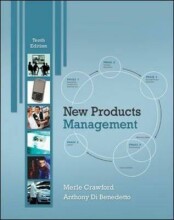Factor Models - Momentum
8 important questions on Factor Models - Momentum
What are the choices when using momentum?
- Lookback period J: how many past returns to include? (e.g. 4 Q)
- Holding period K: how many periods do you keep the portfolio? (e.g. 4 Q)
What is the solution for the criticism "If you check enough combinations, you will always find a significant result"?
What procedure did Jegadeesh and Titman follow in 1993 for their paper on momentum?
- Calculate the returns of ALL stocks over the past J quarters
- Rank the stocks ascending based on their past returns
- Create 10 deciles
- Buy the winner decile, sell the loser decile
- Calculate returns in next month
- Repeat steps 1 to 5 each month
- Higher grades + faster learning
- Never study anything twice
- 100% sure, 100% understanding
Why do J & T (1993) include the Buy-sell (long-short) portfolio?
- This eliminates beta; (i.e., B = 0) almost no exposure to the market
- K = 0, i.e., you almost need no capital (self-financing)
How do we include momentum in the three/five factor model?
- Momentum is the fourth (/sixth) factor
- in which MOMt is the factor mimicking portfolio
- sorting based on return from month -12 to -2
- Long in top 30%, short in bottom 30%
How are the momentum results improved after the 2008 crash?
- Residual momentum:
- Take residuals from three factor model to calculate momentum scores (so do not look at raw returns)
- Momentum and Volume:
- Momentum + high volume = bad ("overbought") -> bubble
- Momentum + low volume = good ("underreaction")
- Momentum and Volatility
- Volatility and correlation adjustments
Short momentum appears to exist, but (what is the underlying idea)?:
- What goes up, must come down?
- What about long-run mean reversion?
- Underlying idea: Overreaction
- Psychological evidence suggests that people overreact to unexpected news events
- Excessive reaction to current information
Why are momentum patterns not arbitraged away?
- Behavioral explanation
- Investors suffer from biases when forming expectations
- Representativeness
- Conservatism
The question on the page originate from the summary of the following study material:
- A unique study and practice tool
- Never study anything twice again
- Get the grades you hope for
- 100% sure, 100% understanding





























